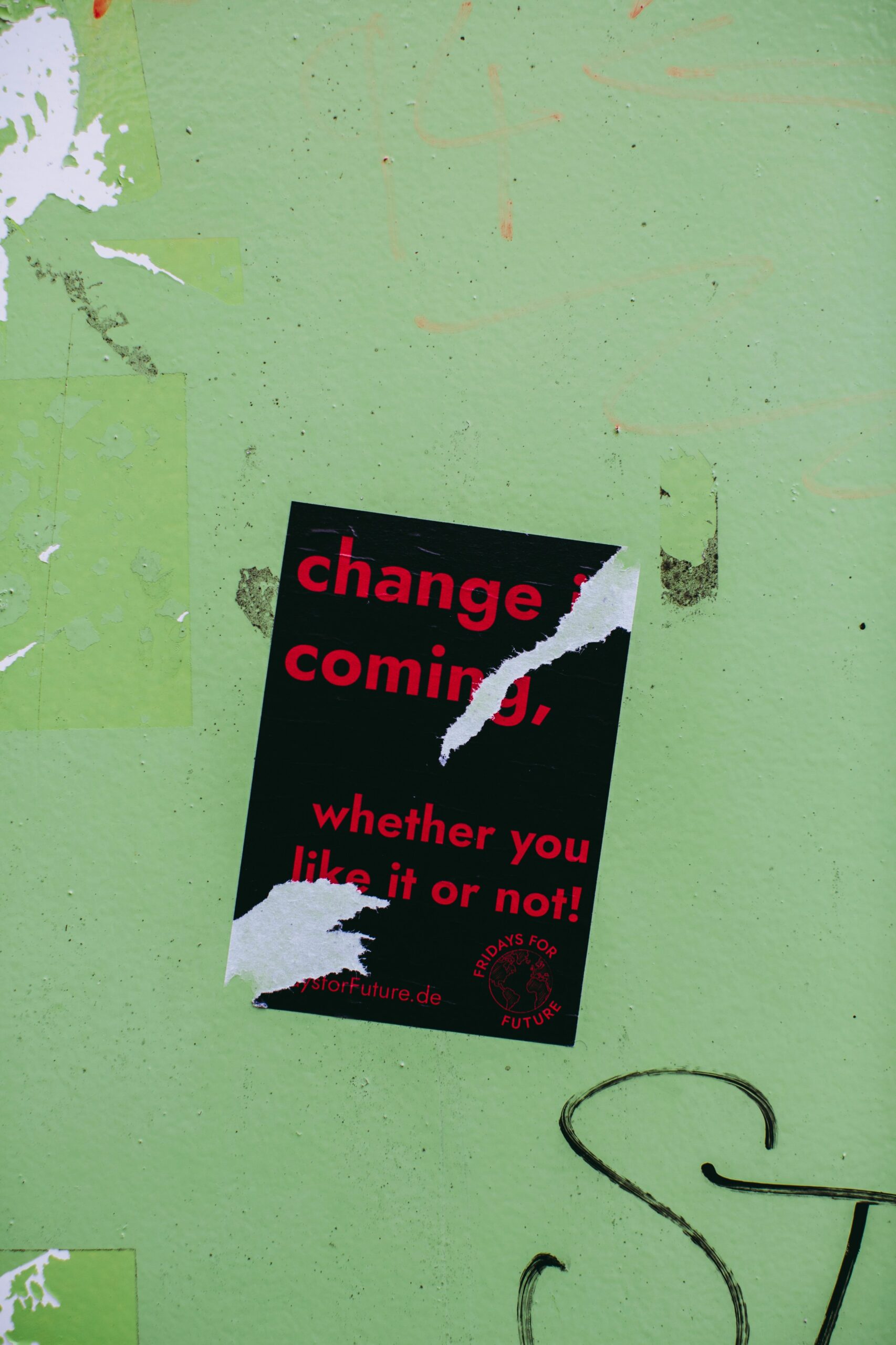“There is nothing permanent, except change” – Heraclitus.
The 2020s so far have felt as unstable as any decade in recent memory. In the 1990s the term VUCA (Volatile, Uncertain, Complex and Ambiguous) was coined to describe the environment following the cold war. Writers have argued that those words no longer sum up the situation we find ourselves in, with Jamais Cascio preferring BANI (Brittle, Anxious, Non-Linear and Incomprehensible) to describe the chaotic world we live in.
Many of my clients demonstrated agility during COVID-19, changing their working models almost overnight. But many of those models have needed to change again and again, meaning change fatigue has set into many organisations.
Change is often necessary, but it’s rarely easy, particularly when it feels constant. However adaptability is key in this digital age and collectively organisations need to find a way to embrace change.
If your teams are struggling to identify the need for change or navigate the process effectively, here are some things to remember in order to smooth the path:
You are dealing with people, not numbers.
Change impacts people on a personal level. It’s not just about processes, targets, or KPIs—it’s about emotions, identities, and how individuals see their role in the bigger picture.
Any change can feel like a loss and people need time to understand and accept changes. I once spoke with someone who felt deeply frustrated by their organisation’s approach to change. “Why?”, I asked. “They took away my pedestal without asking,” they said.
This reaction highlights how crucial it is to empathise with how people perceive change. Building awareness is essential. In productive teams, self-aware individuals create an environment where open, supportive conversations thrive. Team members feel confident in expressing their thoughts and emotions, understanding the unique value they bring—and equally appreciating the value others contribute. This mutual respect and recognition strengthen the team as a whole.
It’s good to talk.
The best change processes I have seen involve a lot of talking. Involve your people in real conversations, where they can impact a change. If a decision has already been made, don’t pretend otherwise. Instead, focus on involving your team in shaping the transition. Honest, transparent communication fosters trust and collaboration.
When people share a common, non-judgmental framework for communication it makes tough conversations during workplace transformations much smoother. This shared language equips individuals with a simple yet effective toolkit to navigate potentially frustrating or awkward situations with greater ease and understanding.
We all see things differently.
Everyone views the world through their own lens. I’ve worked on perceptions with thousands of people and it is always remarkable how differently people perceive the world around them. Ask yourself what you know about your team and how you should therefore engage with them.
Before jumping to conclusions about so-called ‘resisters,’ it’s crucial to understand that change impacts people differently. What works as support for one person might not resonate with another.
Each member of your team has unique interpersonal preferences—or different “colour energies,” as described in the Insights framework—and these differences influence how they approach change. Make sure that you are appealing to all the colour energies rather than just the ones which come easier to you.
The colour energies can prompt one of four key questions:
- Cool Blue – What’s the factual based rationale for this change?
- Fiery Red – What will the outcome or results of the change be?
- Sunshine Yellow – How does this change fit into the vision/big picture?
- Earth Green – What impact is the change going to have on us/me?
Safe spaces are crucial for people to speak.
Change often triggers uncertainty and anxiety. For people to embrace it, they need to feel safe to express their thoughts and concerns. Google’s research on team effectiveness revealed that psychological safety—the belief that it’s safe to take risks or speak up without fear of retribution—is one of the most critical factors in team success.
Ask yourself: Do your teams feel safe to share their honest opinions? How can you tell? Creating a culture of safety requires intention – whether through anonymous feedback mechanisms, open forums, or by modeling vulnerability as a leader- remember that you are a human too!
Listening is a must.
It’s not good enough to just enable speaking up. We need to listen, to show people we are listening and to act on what they have said. It’s not enough to invite feedback; you must also act on it. Demonstrate that you’ve heard your team’s concerns by responding thoughtfully and taking visible steps based on their input.
A great way to validate their contributions is by using language that builds on ideas instead of shutting them down. For example, try saying “Yes, and…” to expand on someone’s perspective, rather than defaulting to “No, but…” which can feel dismissive. If we make room for what we don’t yet know, we can incubate innovation and lead our businesses into a world of infinite possibility.
Recognising the unique perspectives and interpersonal preferences of your people enables you to tailor support that truly resonates. When you focus on listening, involving, and building trust, you don’t just navigate change—you inspire resilience, creativity, and a collective readiness for whatever comes next. In a world where change is the only constant, this is how teams not only survive but thrive.







